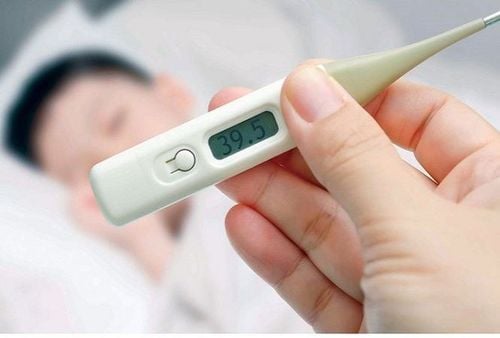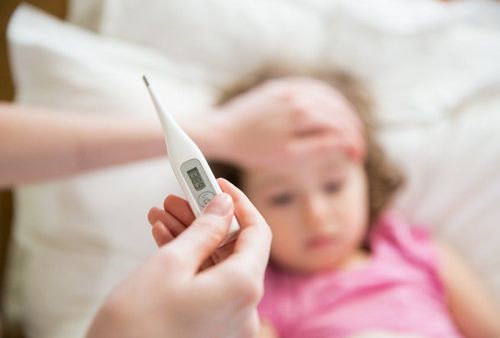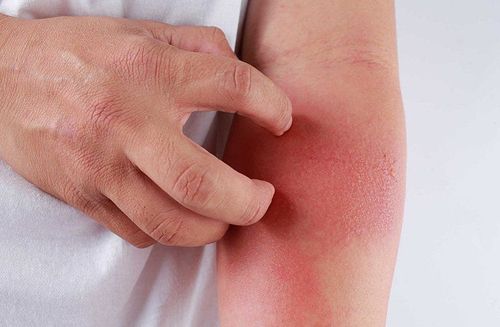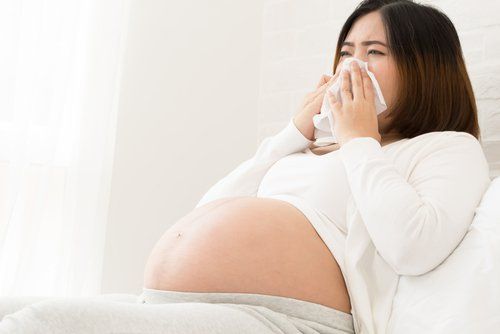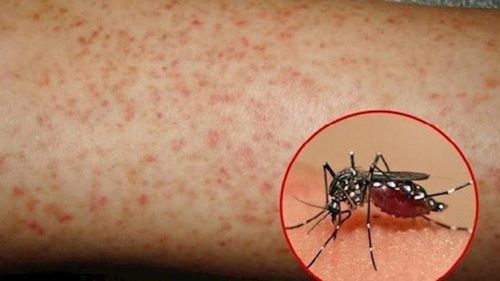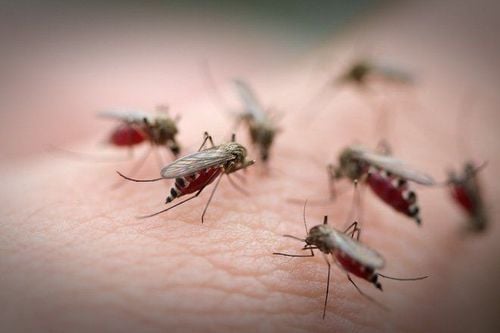This is an automatically translated article.
The most dangerous phase of dengue fever usually falls on the 3rd to 7th day after the onset of fever. The patient may still have a fever or have reduced fever, but his physical condition is much worse, showing signs of fatigue, restlessness, cold extremities, nosebleeds, tooth roots, blood in urine and stools.
1. How long does dengue fever last?
The incubation period for dengue fever from the time of being bitten by the infected mosquito to the onset of the disease is about 3 - 6 days, in some cases lasting up to 15 days. The onset of the disease is similar to that of many other viruses, including sore throat, watery eyes, conjunctivitis, joint pain, muscle pain, especially in the back muscles, with fever up to 39-40oC. Some accompanying symptoms such as thirst, abdominal cramps, digestive disorders, dry skin due to dehydration, unusual hot and cold sweats. On subclinical, white blood cells, platelets show signs of decrease, disorders of coagulation indicators.
Usually after three to five days, the patient with dengue fever begins to have a fever, sometimes it can return a day or two before the fever is completely gone. If there are no bleeding symptoms, it is called classic dengue, which usually occurs in people who have the disease for the first time. In people who have been infected with dengue virus, in the second infection with a different strain of virus (another strain of dengue virus also causes dengue fever), bleeding is more likely, which often occurs in children aged up to school. But now, the proportion of adults with dengue fever is not uncommon. Sometimes, symptoms are more severe in adults than in children. Infants and young children are the subjects that need special monitoring when they have dengue fever.
How long Dengue fever lasts depends on the time of detection, treatment and the patient's condition. If detected and treated promptly, dengue fever will last from 7 to 10 days.
2. The dangerous stage of dengue fever
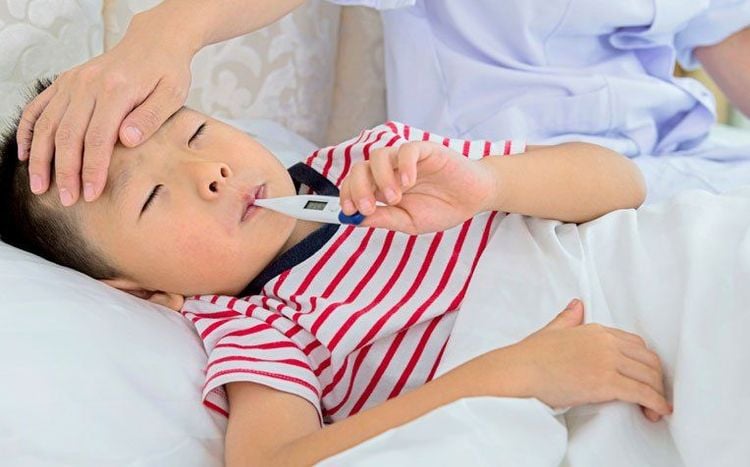
Giai đoạn nguy hiểm nhất của bệnh thường xảy ra từ ngày thứ 3 đến ngày thứ 7 sau khi khởi phát sốt
The most dangerous phase of the disease usually occurs from the 3rd to the 7th day after the onset of fever. Patients may still have fever or have decreased fever, accompanied by manifestations such as plasma leakage (due to increased vascular permeability, usually lasting for 24 - 48 hours), pleural effusion, interstitial tissue, peritoneum, edema of the eyelids, enlarged liver, and possibly pain. If there is a lot of plasma leakage, patients with dengue fever are likely to experience shock with symptoms such as fatigue, restlessness, lethargy, cold in the extremities, cold and moist skin, rapid and rapid pulse, small amount of urine, Trapped blood pressure (a condition in which the difference between systolic and diastolic blood pressure is equal to or less than 20 mmHg), blood pressure may drop or not be measured.
In this stage, the hemorrhagic symptom manifests with nodules or red bruises scattered under the skin, mucous membranes and internal organs. Hemorrhage is usually seen on the front of the legs, on the inside of the arms, in the abdomen, thighs, and ribs. Patients with mucosal bleeding with manifestations such as bleeding from the nose, gums, blood in urine, prolonged menstrual period or earlier than normal period. Signs of internal bleeding can be noticed in the digestive system, lungs, brain and are often severe.
In addition, some severe cases of dengue fever may present with organ failure, such as severe hepatitis, encephalitis, and myocarditis. These severe symptoms may occur in some patients with no obvious signs of plasma leakage or in the absence of shock. Therefore, in clinical practice, the diagnosis of the disease should be cautious. On laboratory testing, an increase in the patient's red blood cell volume (hematocrit) compared with baseline or the population mean of the same age was observed, platelet count decreased, liver enzymes were normal. increase. In severe cases, there will be signs of a blood clotting disorder. On ultrasound or X-ray, pleural effusion can be detected.
3. Dengue fever should do?

Bệnh nhân sốt xuất huyết cần được bù lại nước và điện giải
Dengue fever patients can improve the effectiveness of treatment, shorten the duration of illness and limit symptoms by the following:
Replenish water and electrolytes: It is recommended to use fluids such as filtered water, Oresol solution, orange juice, coconut water... Children with the disease should be given soft food, ensuring a balanced nutrition. Do not drink carbonated drinks. Avoid fast food, spicy food, too hot or too cold food. Avoiding mosquito bites is a way to prevent dengue fever and prevent further disease: People should sleep under mosquito nets even during the day, and close curtains to limit mosquito penetration. Do not let children play in dark places, wet areas, standing water. During the epidemic season, you should wear long-sleeved clothes, use anti-mosquito creams and oils. Regularly clearing bushes, clearing and leveling puddles of standing water, killing bugs, covering water containers around the house to prevent mosquitoes from entering and laying eggs. Periodically clean the area around the house, keep the accommodation clean, make sure it is neat and clean, do not hang too many clothes to avoid making a place for mosquitoes to hide. In particular, when detecting signs of suspicion of dengue fever, patients need to go to a medical facility for examination, diagnosis and appropriate treatment. If delayed, dengue patients are at risk of death due to serious complications occurring.
Please dial HOTLINE for more information or register for an appointment HERE. Download MyVinmec app to make appointments faster and to manage your bookings easily.




